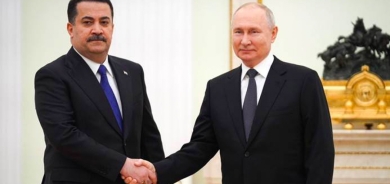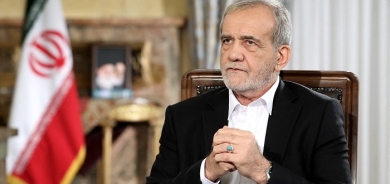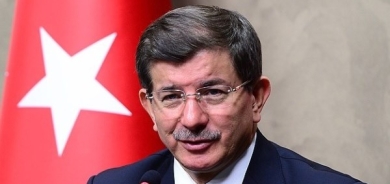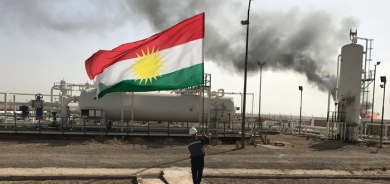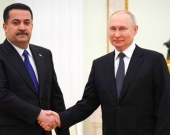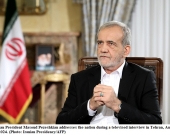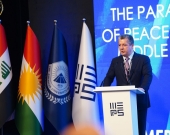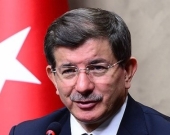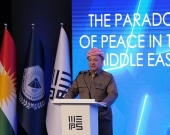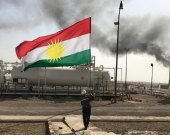Prisoner of conscious dies at Tehran hospital, as world focuses on Iran’s nuclear capacity

The IAEA chief was in north Tehran to persuade Iran to allow the agency to inspect their facilities, part of an effort to bring the country back to the terms of the 2015 nuclear deal that has massively deteriorated since former US President Donald Trump withdrew from it and reimposed sanctions.
Meanwhile, 33-year-old Behnam Mahjoubi, a member of the Gonabadi Sufi order, was in a coma as friends and family held vigils for his recovery. The dervish had been arrested and convicted on “crimes against national security” after taking part in a peaceful protest that sought to bring attention to restrictions placed on the head of the Sufi order by Iranian authorities. The security forces crushed the protest and arrested hundreds. According to Amnesty, more than 200 Gonabadi Dervishes were sentenced to a total of 1,080 years in prison and 5,995 lashes, as well as several other measures in relation to the protest.
The young dervish died while in custody on Sunday, after allegedly being tortured and denied proper medical care.
Mahjoubi’s tragic fate was intensively debated on Iranian social media on Sunday, as the rest of the world discussed President Joe Biden’s national security advisor Jake Sullivan announcement of talks with Iran regarding imprisoned dual nationals, in particular American citizens. There was no talk of imprisoned Iranians like Mahjoubi.
One of the main criticisms of the Joint Comprehensive Plan of Actions (JCPOA), has been that it pays scant attention to the plight of ordinary Iranians facing severe human rights abuses. The new administration has placed an emphasis on curbing Iran's potential nuclear capacities and returning to the deal, but has by and large been silent on Iran's human rights violations inflicted on its own people.
The young dervish was incarcerated in the notorious Evin prison last June despite a medical certificate which stated that he was not fit to be kept in prison. At the time authorities claimed that over 100,000 prisoners were granted furlough to prevent the spread of the coronavirus pandemic in prisons in Iran, which became the epicenter of the virus in the region. Mahjoubi was not one of them.
“In both detention facilities, he was beaten, held in solitary confinement with lights on for 24 hours a day and interrogated without a lawyer present. His interrogators questioned him about the activities of the Gonabadi Dervishes, told him to provide the names of all the Gonabadi Dervishes he knows, and forced him to sign “confessions”,” Amnesty International said in a statement in December.
While imprisoned Mahjoubi became seriously ill, after several hunger strikes severely weakened his body, and he fell into a coma. Despite repeated pleas for medical attention, the authorities kept Mahjoubi in prison until February 15. When his wife Saleheh Hossein visited him a few days later at Loghman hospital, 8 kilometers to the south of building of the Atomic Energy Organization of Iran (AEOI) where Grossi was to hold talks with the Iranian officials, 10 officers were keeping an eye on Mahjoubi who was hooked up to several machines in the hospital’s intensive care unit.
“His body was swollen and hot… he was breathing through a machine, when I pressed his foot, he had no sensation, … his friends said that he did not go to sleep for three nights [prior to falling ill]… he was having convulsions,” his wife Saleheh Hosseini told Radio Farda on February 17.
Mahjoubi had been given a drug, which he vomited, some of which was lodged back into his lungs, causing aspiration pneumonia and one of his lungs to stop working, according to Hosseini.
“There was nothing we could do, who do they think they had arrested? A man who sat outside a police station and said free my brothers and being a dervish is not a crime? Who do they think they have arrested that 10 officers watch him, he is like a corpse, a corpse can’t run away,” added Hosseini.
As Grossi returned to Europe on Sunday evening, concluding an agreement with the Iranians over the nuclear issue to continue “to implement fully and without limitations its Comprehensive Safeguards Agreement with the IAEA as before,” authorities were flying the body of the young Dervish to his birth place of Kerman for burial.
Two years after the signing of the JCPOA, not only has Iranian President Hassan Rouhani’s government not become more moderate as President Barack Obama had predicted, but human rights conditions have deteriorated.
“There are numerous reports of the use of physical and mental torture, including to coerce confessions. I regretfully note that amputation, blinding, flogging, and the continued use of prolonged solitary confinement continue to be regularly practiced,” said Asma Jahangir, the then UN Special Rapporteur on the Situation of Human Rights in Iran told the UN General Assembly on October 25, 2017. Subsequent special rapporteurs have raised the same concerns about the inhuman practices of the Iranian government.
Many worry Mahjoubi’s body will be swiftly buried, along with any evidence of Iranian authorities’ wrongdoings, to avoid another public relations disaster as the US administration prepares to move ahead with yet another agreement with Tehran, perhaps also devoid of considerations for the human rights of Iranians.
A video circulated by activists on social media shows the dervish’s mother Batul Hosseini saying she would not permit her son’s burial until a medical examiner determined the cause of death.
“Dear Behnam, did they remove your handcuff and shackles,” Ebrahimallah Bakhshi, a fellow Dervish and tireless advocate of the Gonabadi Dervishes tweeted on Monday morning a day. “I don’t know where Behnam is, they are even scared of his lifeless corpse.”
Rudaw

